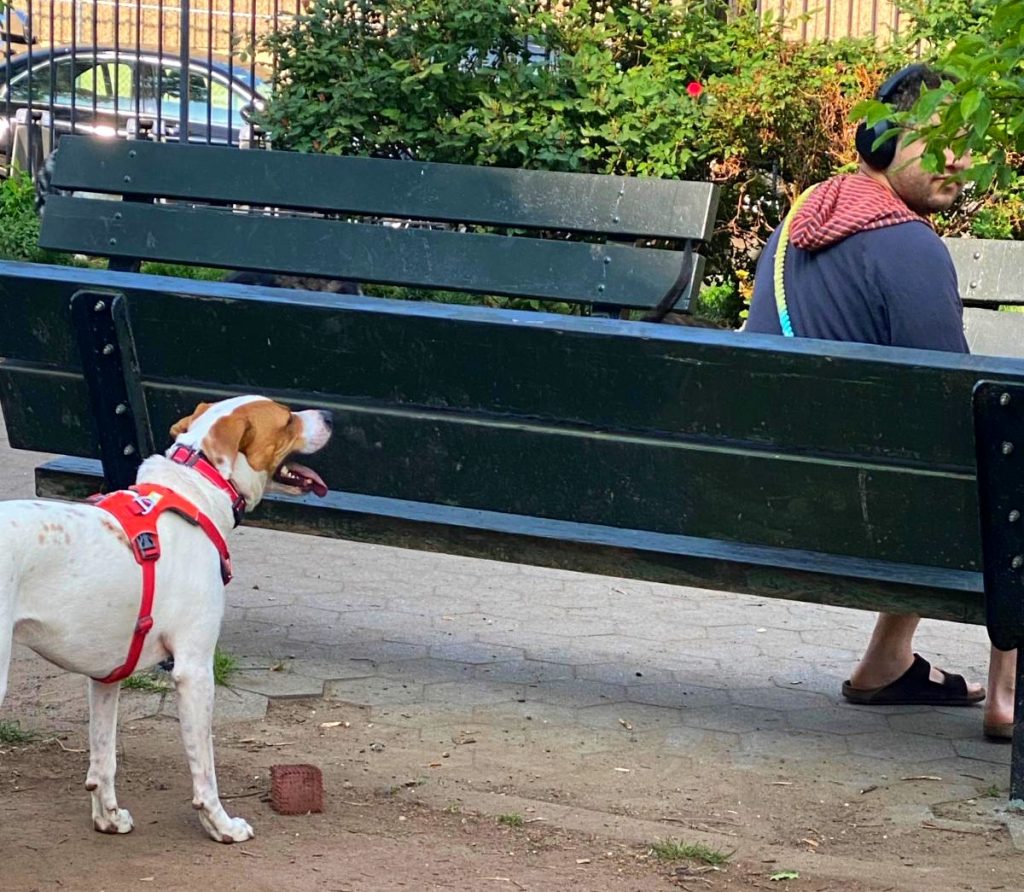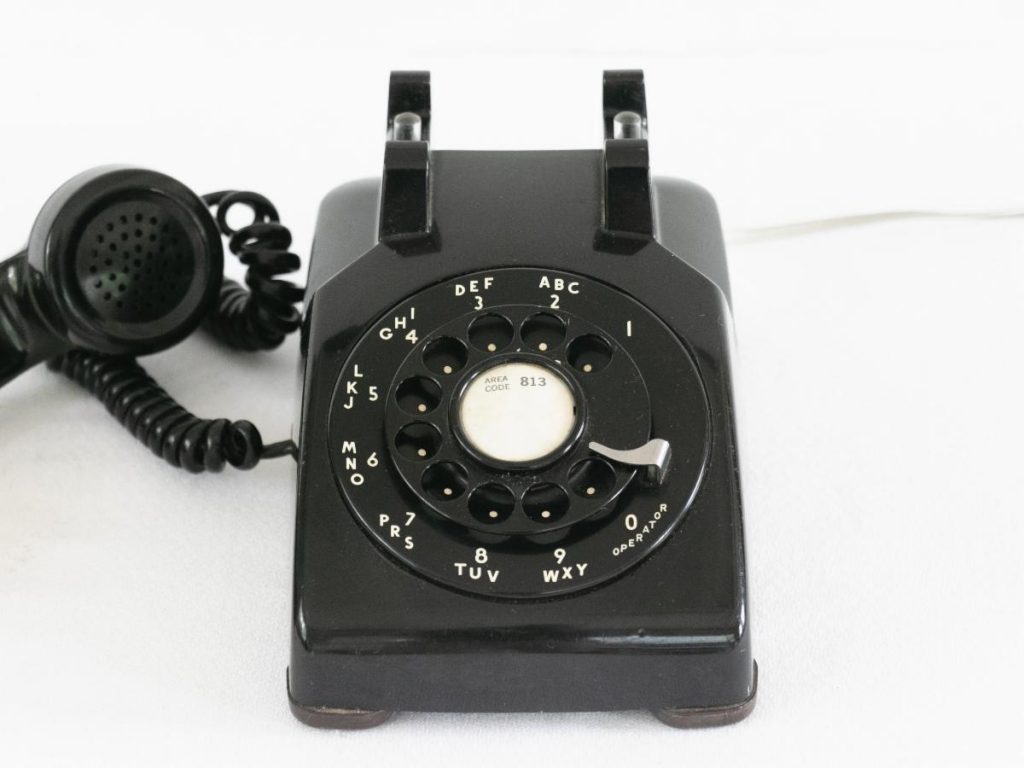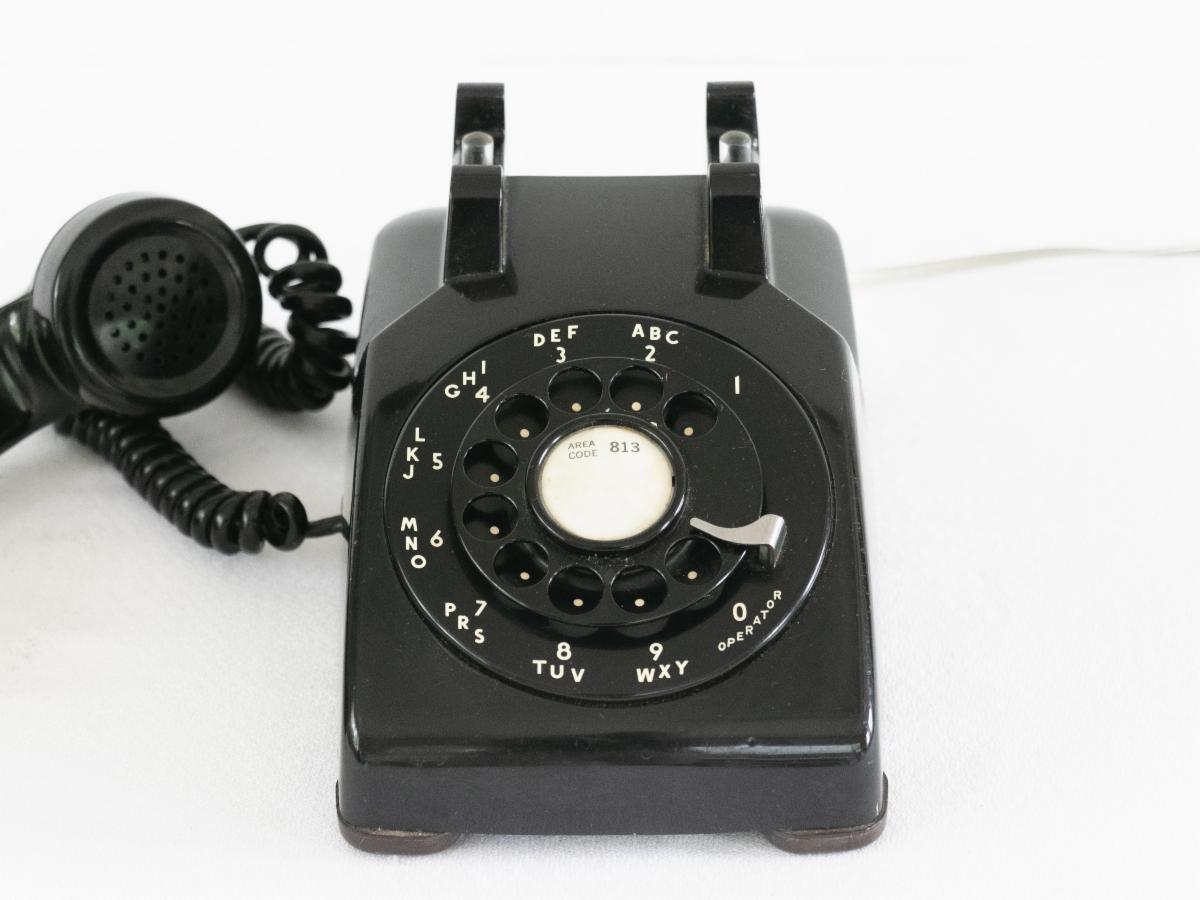Sometimes noise-canceling headphones are not enough.
Especially when the asking is loud and clear, it can cut through anything.
You see, although 95% of the time Vlad drops the ball directly in front of his chosen candidate for fetch, occasionally he will approach from behind.
He always gives his intended human playmate a moment to energetically sense his presence.
Yet if that does not work in a reasonable amount of time, he does not hesitate to announce his presence with a heartfelt Yelp.
In fact, I captured the moment right before that happened this morning.

This month as I’m exploring the theme of Asking––this month’s Guided Visualization is HERE––I’ve been reminded of others who, like Vlad, have no problem asserting their desires.
One of my favorite examples of this is Hollywood legend Jerry Weintraub.
When he was a mere 26 year-old fledging talent manager, Jerry dreamt he saw a Madison Square Garden marquee saying “Jerry Weintraub presents Elvis Presley.”
There were “only” two problems:
1. Elvis hadn’t been on tour in years.
2. Jerry had actually never met Elvis.
Undeterred, Jerry called Elvis’ manager Colonel Parker and pitched the idea.
He was swiftly turned down.
Rather than exhausting Jerry’s reservoir of chutzpah, this had little effect on his determination.
He decided in order to stay top of mind in case there was a change of heart, he would call the Colonel every day.
And he did so…for more than a year.
Let that sink in:
Continuously rejected, he called every day for over a year.

Brené Brown has written about how men and women tend to feel shame around slightly differently axes.
Women’s shame tends to center around never being enough.
With men, it’s more around being “perceived as weak.”
Thus, it’s no wonder we all have so much trouble around asking.
If and when we do ask, it may mean that we are either weak or not enough…or perhaps a tragic combination of both.
Knowing this makes Jerry Weintraub’s year+ of daily phone calls all the more remarkable.
He seemed able to ask boldly and frequently without any of this debilitating internal dialogue.
Somehow, he never go the Shame memo.

I’m very much enjoying my rereading of Amanda Palmer’s The Art of Asking, a memoir inspired by her time busking as the Eight Foot Painted White Bride.
One theme in particular resonated this week.
Soon I’ll be traveling to attend an event that’s already generating lots of mixed feelings in me.
To be clear, it’s not that I’m anticipating any overt hostility.
And some of the feelings are quite positive––otherwise I wouldn’t be going––but the negative ones I realize are all about not being seen.
(And, if I’m being honest, it’s hard not to interpret the unwillingness to take someone in, the refusal to even attempt to acknowledge who someone really is, as aggressive.)
At best, it simply feels off and subliminally disorienting.
At its worst, it’s a great argument for staying home.
In contrast to all this, Amanda Palmer writes eloquently about how each time someone gave her money on the street and she gave them a flower in exchange, how powerful an experience it was.
This passage in particular resonates strongly with me:
“Here’s the thing:
all of us come from some place
of wanting to be seen, understood, accepted, connected.
Every single one of us wants to be believed.
Artists are often just…
louder about it.”

Back to Jerry & Elvis…
One morning, the call finally came.
The Colonel said Elvis was ready.
All that asking had paid off…but…
There was a quite a hitch.
For Elvis to say “Yes” to a tour, the Colonel required that Jerry show up at the roulette table at the Hilton International Hotel in Las Vegas with $1 million.
And…it had to happen in 24 hours.
Not having anywhere near that kind of money in his bank account, Jerry had to scramble like mad to come up with the cash.
In a supremely ironic gesture from the Universe, success meant that now a new, even more intense level of asking was required, one with an immediate deadline and airfare!
In this retelling of the tale HERE, I love how the author uses a Haitian proverb to illustrate the predicament of Jerry’s getting a Provisional Yes.
“Beyond the mountains, there are more mountains.”
Perhaps you can relate?

Part of why I love the Jerry Weintraub | Elvis story so much is that it underscores the element of persistence, something that’s often (but not always) essential to successful asking.
As Jerry wrote in his memoir, When I Stop Talking You’ll Know I’m Dead (great title!):
“When the man says no, pretend you can’t hear him. Look confused, stammer, say, ‘Huh?’ Persistence — it’s a cliche, but it happens to work.”
And, of course, after a hurricane of phone calls to everyone he knew, Jerry Weintraub managed to find an avid Elvis fan who fronted the cash he needed.
He arrived successfully in Vegas to present Colonel Parker with the money and launch his own mega-successful career, becoming a millionaire himself at twenty-six.
Obviously, Jerry knew on a gut level the necessity of hanging in there.
Again, as he wrote:
“I have accomplished almost nothing on the first or second or even third try—the breakthrough usually comes late, when everyone else has left the field.”
Beyond that persistence though, there’s something else I’m interested about his (and Vlad’s) asking that I admire, perhaps even envy.

Simply put, asking on this level requires a deeply felt sense of self worth, one that’s not fragile or easily unsettled.
As Amanda Palmer writes:
“Asking for help requires authenticity, and vulnerability.
Those who ask without fear learn to say two things, with or without words, to those they are facing:
I deserve to ask
And
You are welcome to say no.”
Whether it’s getting someone to toss the ball to you, or to advance you a cool million to launch your concert promoting career, Vlad and Jerry aren’t entertaining a dialogue about whether or not they deserve to ask.
(That’s not even an option on their Conversational Menu.)
Instead, they show up expecting to be seen.
From that foundation, they are therefore absolutely certain they will succeed––even if it takes a bit of scrambling to get to Vegas in 24 hours (or an occasional yelp to someone foolish enough to wear headphones to the dog park.)
As I charge my kindle and pack my new suit for this mixed feeling-engendering trip, I’d like to operate at that level.
Confident, as Amanda writes, that my asking to be “seen, understood, accepted, connected” doesn’t require some imaginary (and therefore utterly unattainable) Certificate of Worthiness.
Instead, I can simply show up.
And––as Vlad has taught me––if necessary, Yelp.

